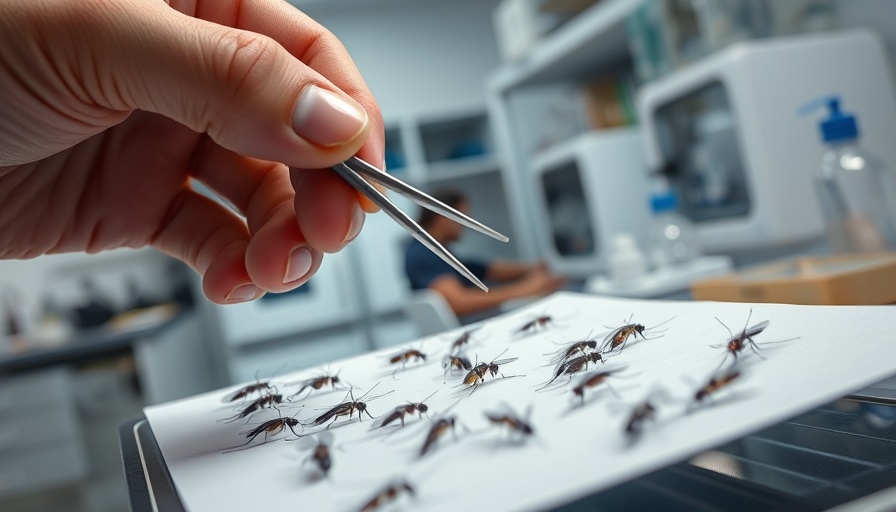
Understanding the Surge in West Nile Virus Cases
This August, as we bask in the lingering warmth of summer, health officials in North Dakota and Minnesota are ringing alarm bells over the rising cases of the West Nile virus (WNV). With the peak season fast approaching, experts are urging communities to stay alert and proactive in protecting themselves from mosquito bites. According to data from the North Dakota Department of Health, there have been 43 reported cases of West Nile this year, surpassing last year’s total. Minnesota is also witnessing an uptick, recording 20 cases to date. This increase highlights the importance of public awareness and preventive measures in safeguarding our health.
What is West Nile Virus?
The West Nile virus, primarily transmitted through mosquito bites, can lead to serious infections in some individuals, particularly the elderly or those with compromised immune systems. Symptoms can range from mild flu-like signs to severe neurological issues. As we enter this peak period, understanding the risks and taking sensible precautions becomes crucial.
The Role of Environmental Awareness
Local health experts like epidemiologist Amanda Bakken emphasize the significance of community awareness in combatting mosquito-borne diseases. By staying vigilant, we can reduce mosquito breeding grounds around our homes. This includes removing standing water from gutters, birdbaths, and any outdoor furniture. Community efforts can make a big difference in controlling the mosquito population.
Steps You Can Take to Protect Yourself
As the mosquito population rises, here are some practical tips to protect yourself and your family from West Nile virus:
- Use insect repellent: Apply a repellent containing DEET, picaridin, or oil of lemon eucalyptus when outdoors, particularly in the evenings when mosquitoes are most active.
- Wear protective clothing: Long sleeves and pants can help decrease exposure to bites, especially during peak mosquito hours.
- Install screens: Ensure windows and doors are properly screened to keep mosquitoes out of your home.
- Be mindful of outdoor activities: If you plan to be in mosquito-prone areas, consider doing so during times when mosquito activity is lower, like midday.
The Community's Responsibility
Collectively, communities play a vital role in reducing the likelihood of mosquito-borne illnesses. Local governments can bolster efforts by implementing targeted spraying programs during outbreak peaks. Community involvement in clean-up initiatives to eliminate potential breeding sites is equally essential.
Looking Ahead: Health Insights and Community Actions
As we move deeper into August, it’s essential to heed the advice of health officials and adopt preventive strategies. While North Dakota reports no fatalities from the virus this year, two deaths have been recorded in Minnesota, illustrating the serious nature of this public health issue. By staying informed, we can foster a safer environment during these final weeks of summer.
Commitating to Community Health
Being aware of the risks associated with the West Nile virus not only protects individuals but also strengthens community health. As we navigate this peak season, let’s prioritize safety together by sharing this information and taking collective action to mitigate risk.
Remember, the best defense against West Nile is a smart, proactive community that prioritizes health and safety.
 Add Row
Add Row  Add
Add 




Write A Comment